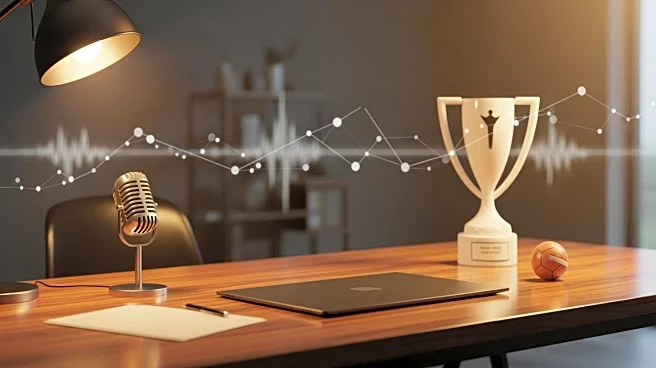What's Happening?
Elon Musk's artificial intelligence company, xAI, has filed a lawsuit against a former engineer, Zhihao 'Zack' Li, accusing him of stealing confidential files related to the development of their chatbot, Grok, before joining rival OpenAI. The lawsuit, filed in California state court, claims Li copied proprietary materials in July 2025 and sold $7 million worth of vested xAI stock before his departure. In a similar case, Scale AI, a leading AI data-labeling firm, has sued competitor Mercor Inc. and former employee Eugene Ling for allegedly misappropriating trade secrets to win new business. Scale AI alleges Ling downloaded over 100 confidential documents to a personal Google Drive and contacted a top client on behalf of Mercor while still employed at Scale.
Why It's Important?
These lawsuits underscore the intense competition within the AI industry, where intellectual property and proprietary data are crucial for maintaining market dominance. The theft or alleged theft of such information can significantly impact a company's competitive position. For investors and industry stakeholders, these cases highlight the risks associated with protecting valuable trade secrets. As AI technology becomes increasingly integrated into everyday applications, companies are likely to become more protective of their innovations, potentially leading to more legal battles over intellectual property rights.
What's Next?
Both xAI and Scale AI are seeking damages, legal fees, and injunctions to prevent the use of the allegedly stolen materials. The outcomes of these lawsuits could set important precedents for how trade secret disputes are handled in the rapidly evolving AI sector. Companies may need to implement stricter security measures to protect their intellectual property, and the legal landscape may evolve to address the unique challenges posed by AI technology.
Beyond the Headlines
The legal actions taken by xAI and Scale AI reflect broader ethical and legal challenges in the tech industry, particularly concerning employee mobility and the protection of trade secrets. These cases may prompt discussions about the balance between fostering innovation and safeguarding proprietary information, as well as the responsibilities of employees when transitioning between companies.











